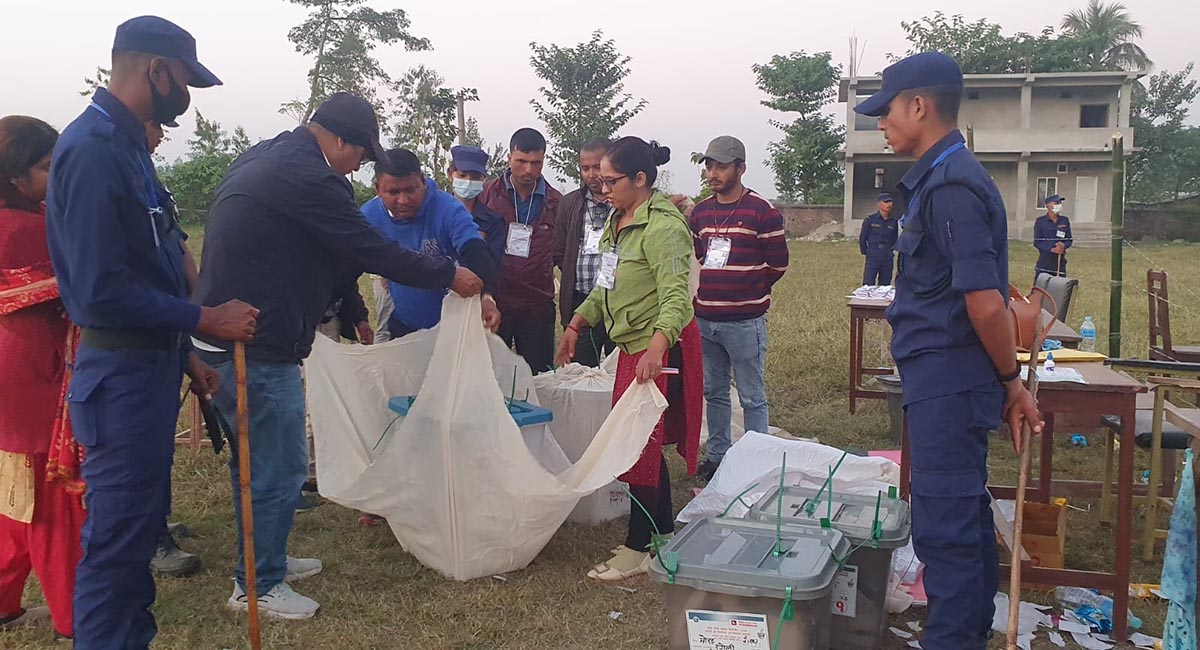The RSP is set to emerge as a significant and influential political force that could challenge the dominance of old parties in the federal parliament. The party didn’t file any candidacy in provincial assemblies.
Says Krishna Khanal, a professor of political science, the success of RSP in this election is ‘the culmination of dissatisfaction’ of mostly young voters with the old parties. He says the votes secured by the RSP are voters venting out their frustration. “Otherwise a party that is yet to become a full-fledged political force and decide its clear ideological line would not attract so many voters.” The success of RSP is also an expression of national mood for a change. “People have lost faith in political parties and their leaders,” says Khanal. Historic Low voter turnout (61 percent) can also be taken as an indication of public frustration. Indra Adhikari, political and security expert, agrees that low voter turnout and success of RSP are both signs of voters’ resentment with old and established parties like NC and Maoist Centre. “Due to the unchanged attitude of the old and tested leaders from dominant political parties, the voters in general are disenchanted,” says Adhikari. “This is a rebellion of ballots. It is clear Nepal’s young and urban voters want alternative political forces.” Though NC is set to win far more seats in the House of Representative under the FPTP system, initial trends suggest that its coalition partner Maoist may not perform as well. The Maoist party will not be able to win as many seats as it did five years ago. It had won 36 seats. The Congress, meanwhile, seems to have benefitted by leading the coalition of five parties that includes Maoist, Unified Socialist and two other fringe parties. The Unified Socialist, a breakaway faction of UML is struggling to become a national party for which it needs to win three percent of total votes under the PR system and one seat under the FPTP. This might lead to misunderstanding among the partners of the grand coalition that went to election under the leadership of NC. “The coalition that came together to check the authoritarian tendencies of former prime minister KP Sharma Oli continued until election and for the purpose of election only,” says Khanal. Though UML and Congress will emerge as the first two major parties, their proportion of votes might shrink compared to previous elections. Poor performance of Janata Samajbadi Party (JSP) and defeat of its leader Upendra Yadav at the hands of Janamat Party’s CK Raut also demonstrate voter dissatisfaction in the Tarai region. Another influential Madhes-based party, Loktantrik Samajbadi Party, is also not faring well either. Like elsewhere in the country, people in Madhes too desire change. “A chorus for change is ringing loud and clear across the country,” says Adhikari. Perhaps the old political parties and their leaders have heard.











